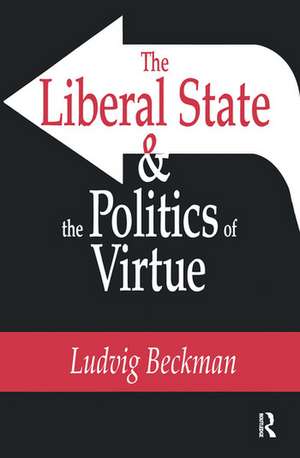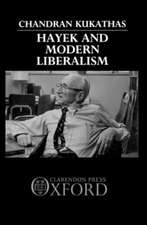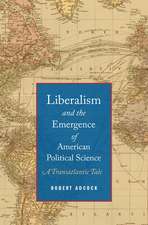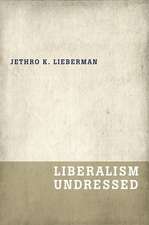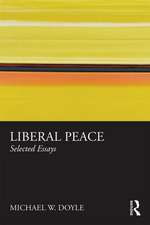The Liberal State and the Politics of Virtue
Autor Ludvig Beckmanen Limba Engleză Paperback – 16 apr 2018
| Toate formatele și edițiile | Preț | Express |
|---|---|---|
| Paperback (1) | 389.38 lei 6-8 săpt. | |
| Taylor & Francis – 16 apr 2018 | 389.38 lei 6-8 săpt. | |
| Hardback (1) | 1002.63 lei 6-8 săpt. | |
| Taylor & Francis – 31 mar 2001 | 1002.63 lei 6-8 săpt. |
Preț: 389.38 lei
Nou
Puncte Express: 584
Preț estimativ în valută:
74.51€ • 77.79$ • 61.66£
74.51€ • 77.79$ • 61.66£
Carte tipărită la comandă
Livrare economică 04-18 aprilie
Preluare comenzi: 021 569.72.76
Specificații
ISBN-13: 9781138516212
ISBN-10: 113851621X
Pagini: 292
Dimensiuni: 152 x 229 x 15 mm
Greutate: 0.45 kg
Ediția:1
Editura: Taylor & Francis
Colecția Routledge
Locul publicării:Oxford, United Kingdom
ISBN-10: 113851621X
Pagini: 292
Dimensiuni: 152 x 229 x 15 mm
Greutate: 0.45 kg
Ediția:1
Editura: Taylor & Francis
Colecția Routledge
Locul publicării:Oxford, United Kingdom
Cuprins
1: Liberalism and Virtue: The Beginning of an Argument; 2: Virtue in Liberal Thought: A Primer; 3: The Liberal Way of Life: Dworkin on Virtue; 4: The Liberal Citizen: Rawls on Virtue; 5: Rights and Virtues: In Conflict?; 6: Dimensions of Neutrality: The Neutral State as an Ideal; 7: Neutral Aims: Dworkin and the Liberal State; 8: Neutral Reasons: The Liberal State Justified; 9: Liberalism and Dogmatism; 10: Conclusions: The Liberal’s Predicament
Descriere
Most Americans would probably be surprised to hear that, in 1959, James Burnham, a leading political thinker questioned whether Congress would survive, and whether the Executive Branch of the American government would become a dictatorship. In the last decade, members of Congress have impeached a president, rejected or refused to consider presidential nominees, and appear in the media criticizing the chief executive. Congress does not exactly appear to be at risk of expiring. Regardless of how we perceive Congress today, more than forty years after Congress and the American Tradition was written, Burnham's questions, arguments, and political analysis still have much to tell us about freedom and political order.Burnham originally intended Congress and the American Tradition as a response to liberal critics of Senator McCarthy's investigations of communist influence in the United States. He developed it into a detailed analysis of the history and functioning of Congress, its changing relationship with the Executive Branch, and the danger of despotism, even in a democratic society. The book is organized into three distinct parts. "The American System of Government," analyzes the concept of government, ideology and tradition, power, and the place and function of Congress within the American government. "The Present Position of Congress," explores its law-making power, Congressional commissions, treaties, investigatory power, and proposals for Congressional reform. "The Future of Congress," discusses democracy and liberty, and ultimately asks, "Can Congress Survive?" Michael Henry's new introduction sheds much insight into Burnham's writings and worldview, combining biography and penetrating scholarly analysis. He makes it clear why this work is of continuing importance to political theoreticians, historians, philosophers, and those interested in American government.James Burnham (1905-1987) began his career as a pro
